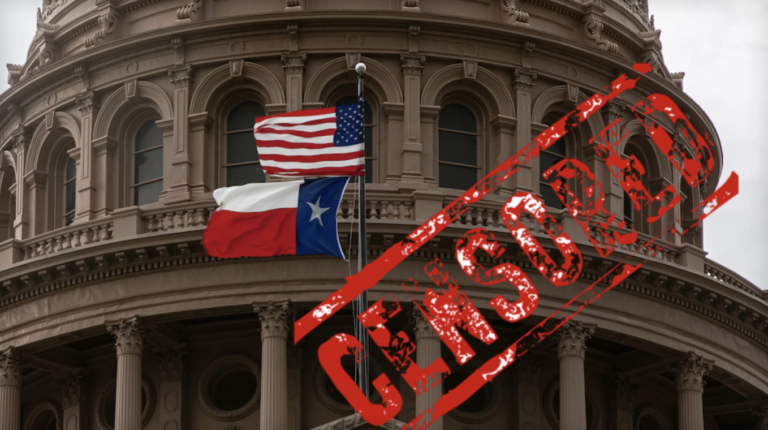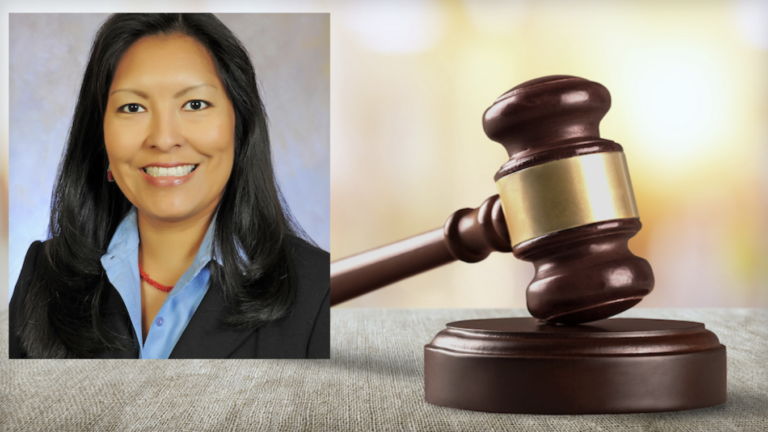AUSTIN, Texas — The Texas legislature has passed a new age verification law that compels adult websites to post pseudoscientific anti-porn propaganda disclaimers declaring that “pornography is potentially biologically addictive, is proven to harm human brain development, desensitizes brain reward circuits, increases conditioned responses and weakens brain function.”
The measure, HB 1181, is a much-augmented version of Louisiana’s age verification law and its many copycats, and echoes the debunked “porn addiction” language of faith-based anti-porn groups. It was spearheaded by religious Republicans but was supported by almost every single Democratic state legislator.
The Texas House passed the amended bill on Thursday, and on Tuesday sent it to Gov. Greg Abbott to be signed into law.
In response, Free Speech Coalition (FSC) condemned the Texas law — along with similar laws recently passed in Louisiana, Utah, Virginia, Mississippi, Arkansas and Montana — as “blatantly unconstitutional” and a “violation of the First Amendment rights of creators, consumers and platforms.”
“Texas becomes the latest state to pass an antiporn bill, requiring not only invasive age-verification, but that all sites post a pseudoscientific warning about porn from the Texas Health and Human Services Department,” FSC posted on Twitter.
The bill mandates age verification by creating liability for any website when more than one-third of its content is “sexual material harmful to minors,” unless the site “uses reasonable age verification methods to verify that an individual attempting to access the material is 18 years of age or older.”
The age verification methods suggested by the state of Texas would “require an individual to provide digital identification; or comply with a commercial age verification system that verifies age using government-issued identification, or a commercially reasonable method that relies on public or private transactional data to verify the age of an individual.”
The Texas law incorporates age verification language similar to that in other states’ laws, but expands upon it by mandating that adult websites accessible in the state post pseudoscientific statements derived from anti-porn propaganda in the form of three “Texas Health and Human Services Warnings.”
Those warnings read: “Pornography is potentially biologically addictive, is proven to harm human brain development, desensitizes brain reward circuits, increases conditioned responses and weakens brain function”; “Exposure to this content is associated with low self-esteem and body image, eating disorders, impaired brain development, and other emotional and mental illnesses”; and “Pornography increases the demand for prostitution, child exploitation and child pornography.”
The warnings must be posted “in 14-point font or larger” on adult sites’ landing pages as well as on any advertisements for adult sites.
The websites are also compelled by the state to post the phone number of the U.S. Substance Abuse and Mental Health Services Administration’s helpline.
The law is set to take effect Sept. 1.
The FSC has promised to litigate against the measure however, declaring “We will fight it and we will win.”
‘Such a Shame’
Industry attorney Corey Silverstein told XBIZ, “It’s such a shame that the state of Texas has jumped on this age verification bandwagon. I’m fairly certain that the taxpayers of Texas would not be very happy if they knew that millions of dollars in resources will be wasted when there is assuredly an eventual constitutional challenge that will not go in the state’s favor.”
Silverstein called HB 1181 “blatantly unconstitutional,” adding that, like other states that have passed similar legislation, Texas “completely ignores the Supreme Court’s prior ruling on this very issue. So while Texas lawmakers may be celebrating a victory that is clearly intended to satisfy its conservative base and score some votes, these same lawmakers are now responsible for pushing a law that disregards the constitution that they swore to protect.”
As for the mandated warnings under HB 1181, Silverstein called them “outright lies that clearly expose the real anti-porn agenda.”


